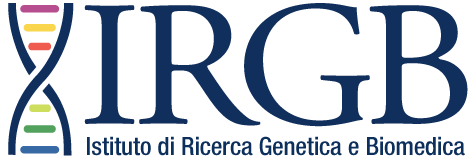Project Description
Search for genetic factors implicated in Hirschsprung Associated Enterocolitis
Search for genetic factors implicated in Hirschsprung Associated Enterocolitis
Hirschsprung’s disease (HSCR) is a congenital gut malformation caused by a lack of innervation that affects about 1 in 5000 live births [1]. One of the most serious complications is constituted by enterocolitis (HSCR associated enterocolitis, HAEC), with an incidence of around 20-30%, which can lead to severe sequelae and a significant mortality (about 3%).
HAEC is likely due to a gut immune system impairment. However, the causes of HAEC are still unknown and the onset is difficult to predict. The susceptibility to enterocolitis in HSCR suggests a genetic susceptibility background, possibly influencing the immune and inflammatory response related to this complication.
We have recently identified a HAEC susceptibility variant in the Oncostatin‐M receptor gene, also implied in Inflammatory Bowel Diseases (IBDs) [2,3], through Whole‐Exome Sequencing on a very small sample size of patients [4].
As far as we know, no other genes have been claimed to be implicated in HAEC, very few genetic investigations on HAEC have been carried out, and nor whole genome sequencing (WGS), neither transcriptome analyses have been ever carried out on HAEC patients.
With the present project we mean to search for pathogenic variants and additional genetic factors predisposing to HAEC by
1) whole Genome Sequencing to identify rare causative variants and common susceptibility variants that might pinpoint to genes with a key role in HAEC occurrence;
2) whole peripheral blood mononuclear cells (PBMC) transcriptome and differential expression analyses to identify differently expressed genes (DEG) between HSCR and HAEC patients;
3) translating this list of DEGs into key functional genes by a more integrated view of transcriptomes, examining the large-scale organization of gene co-expression networks: weighted gene coexpression network analysis [5] will identify biologically relevant modules of highly co-expressed genes under the assumption that co-expressed, and thus co-regulated genes, are functionally related. Functional enrichment analysis will be also performed to examine modules biologically related to enterocolitis, and important candidate genes will be investigated;
4) exploring the genetic overlap between HAEC and IBDs by a candidate genes association between HAEC and IBDs known genes, and between the HAEC candidate genes identified through the present project and IBDs data from the UK Biobank.
By the results obtained through the four aims and their integration, we expect to elucidate HAEC genetics, finding genes implicated in the HAEC onset through coding but also in regulatory variants.
Funding sources:
PRIN2022 - Ministero dell’Università e della Ricerca [grant number: 2022AY3279]
Research Team:
The project is led by Francesca Lantieri, researcher at the University of Genova, with the collaboration of Paola Forabosco, researcher at the IRGB-CNR.

